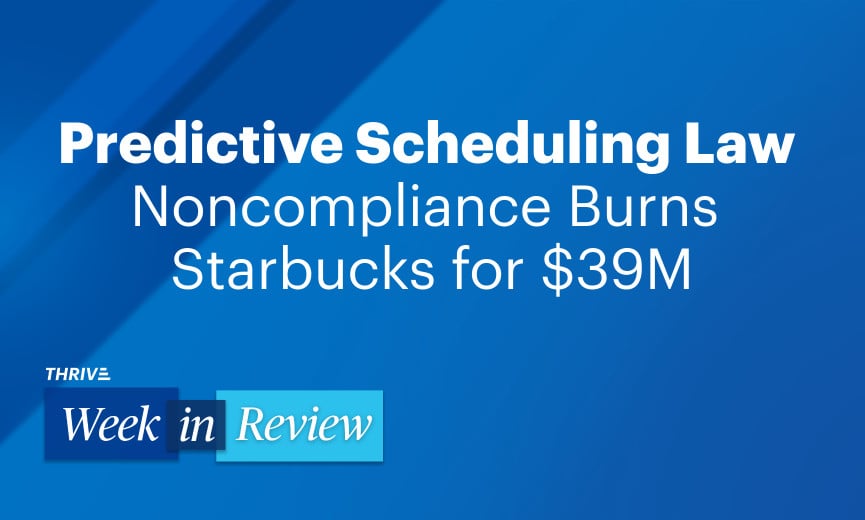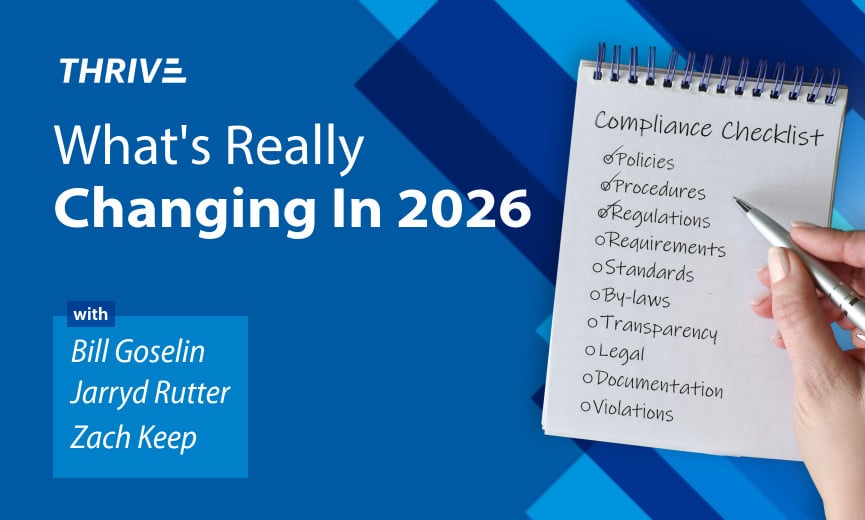- Thrive
-
Season
4Episode91
IRS Audits, California Fast-Food Minimum Wage, and Walmart Pay Differences

Podcast •

Summary
The IRS indicates that corporations and the wealthy have been working their way around the tax rules, so it's adding thousands of specialists to increase audits. Some fast-food franchises in California should anticipate payroll going up with a potential hike in the minimum wage heading toward becoming law. Walmart, on the other hand, decided to lower some starting salaries. What does it all mean? Gene Marks shares insights, including a dislike of the government singling out certain industries for wage hikes and the fuzziness around who the IRS considers wealthy. Listen to this week’s podcast for more.
View Transcript
[Gene Marks, host]
Hey, everybody, this is Gene Marks, and welcome to another episode of the Paychex podcast Week in Review. Thanks for joining me. Thi podcast where we take three stories from the news during the week and give you a little bit advice and analysis of them. So, let's get right to it, shall we?
The first has to do with the Internal Revenue Service. According to the New York Post and other reports, the Internal Revenue Service is looking to hire an additional 3,700 staffers in the hopes of rooting out wealthy Americans who are skirting their tax payments.
The federal agency, according to the Post, issued a statement on Friday saying that it plans to fill positions at more than 250 locations nationwide. IRS Commissioner Danny Werfel said the next wave of hiring will help the IRS add key talent like tax accountants help reverse a decade long decline of audits for the wealthy, as well as complex partnerships and corporations.
The move comes a week after the IRS announced a sweeping effort to restore fairness to the tax system – this is in quotation marks – “by increasing scrutiny on high income partnership corporations and promoters abusing tax rules on the books.”
So, the IRS is coming down hard and are coming down on the wealthy. I don't really know how you define what is wealthy or not in this country, but if you're running a business, just be aware. There are billions and billions of dollars that have gone to funding the IRS and the IRS, the agency, is hiring auditors.
So, make sure your books are in order. Guys, talk to your accountant that you're not cutting any corners. I truly believe that the IRS will be making examples of some smaller businesses as well as larger ones, as well. So just be very aware that they could be coming for you and prepare for that.
Next bit of news comes from CNBC has to do with a new bill in California. You ready? According to CNBC, after California lawmakers passed the landmark fast-food bill and an independent advocacy group of McDonald's owners is pushing back against what it says will be a devastating financial blow to its franchisees in the state.
The bill is called AB 1228. It was passed by the state Senate last week and it heads to Gov. Gavin Newsom for signature. He has already pledged to sign the bill into law. It includes a wage floor of $20 per hour for California workers at fast-food chains of at least 60 locations nationwide starting on April 1. Labor groups have been pushing for even higher wages in previous legislation, but the resulting $20 an hour floor prevailed.
Even in a state where the minimum wage is $15.50 in the pay floor is even higher in some municipalities, the deal will bring a significant raise for many workers. But, despite support from franchisee and restaurant advocacy groups, some owners are concerned about the bill means for operations in a challenging labor market and during a period of high inflation.
Not really feel about this. Minimum wage is a continuous issue. Numerous studies coming out that say they support minimum wage, saying that it, you know, creates jobs and adds income for workers. And there are always conflicting studies to say the exact opposite. Nobody really seems to know.
I think the bottom line is this. I don't think McDonald's is going out of business anytime soon and I do think that McDonald's will just basically have to do either one of two things: They will have to raise prices or they will have to cut down on workers and use more technology like those self-service ordering kiosks.
We'll see the changes and they're going to have to adapt. It is ominous for a state to be charging, you know, requiring some employers to pay this much in at minimum wage and really singling out specific industries to do that. Not a great thing. And we'll see if that actually spreads around the country and this test in California as it goes.
The third and last bit of news has to do with Wal-Mart. Now, remember, I just told you that in California, there's legislation to increase the wages of these hourly workers in fast food. Well, Wal-Mart is actually decreasing workers. The nation's largest private employer has made a significant move that indicates compensation aggression, maybe cooling. This is a report in the Society of Human Resource Management website, shrm.org.
Wal-Mart, which has roughly 1.6 million U.S. employees, has lowered starting pay for new hires who prepare online orders for curbside pickup or delivery to customers homes, as well as the workers who restocks store shelves. The change began in July with new Walmart employees making about a dollar an hour less than those who joined the company a few months later.
Wal-Mart said in a statement that the move was made, in part, so its starting pay was consistent across positions. But the news is still a reversal from the days when the retail giant boosted pay for most of its workers in a competitive job market. Earlier this year, Wal-Mart hiked its minimum wage for store workers to $14 from $12 an hour.
All of this is indicative of a softening in the labor market. This is to me showing that Wal-Mart is responding because if they had to increase wages because of a shortage of laborers, then they would certainly do that, but clearly they don't feel the need to do that. So, maybe that also will be an ease in compensation pressure that we're facing as business owners while we're trying to attract or retain talent.
So, these are the three items. The IRS hiring more auditors, 3700 more, going after the wealthy, whatever that means, means for you and me just to be prepared, nonetheless. McDonald's and other fast-food franchises with more than 60 locations in California are going to be forced to pay their workers a minimum wage of $20 an hour. A bit foreboding for other industries and maybe even other states, as well. They're going to be watching what happens in California. Finally, Wal-Mart lowering its starting pay for some workers could indicate a softening in the labor market.
My name is Gene Marks, and you've been listening to the Paychex THRIVE Week in Review podcast. This is where we take a few items from the news and get a little bit of analysis on them. I hope you found this now simple. Hope you find the news helpful. We'll be back with you next week with another episode of the Week in Review.
In the meantime, you got any advice or guests that you would like to suggest, please visit us at payx.me/thrivetopics. Again, my name is Gene Marks. We'll see you again next week. Take care.
This podcast is property of Paychex, Inc. 2022. All rights reserved.

 Apple Podcast
Apple Podcast Spotify
Spotify iHeartRadio
iHeartRadio








